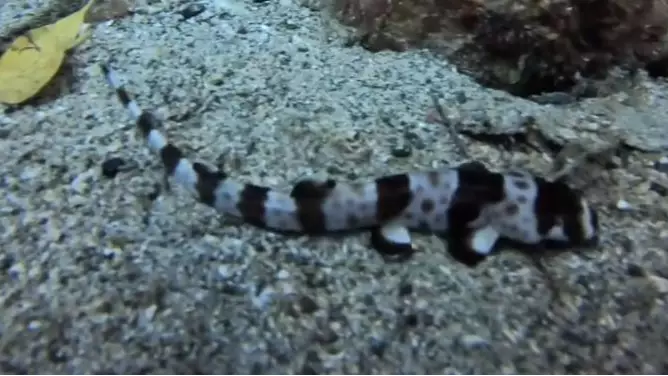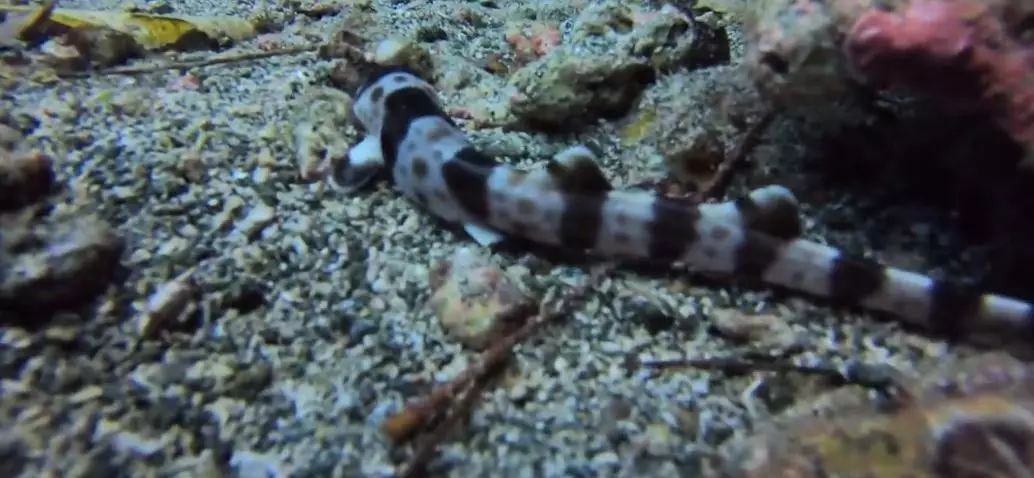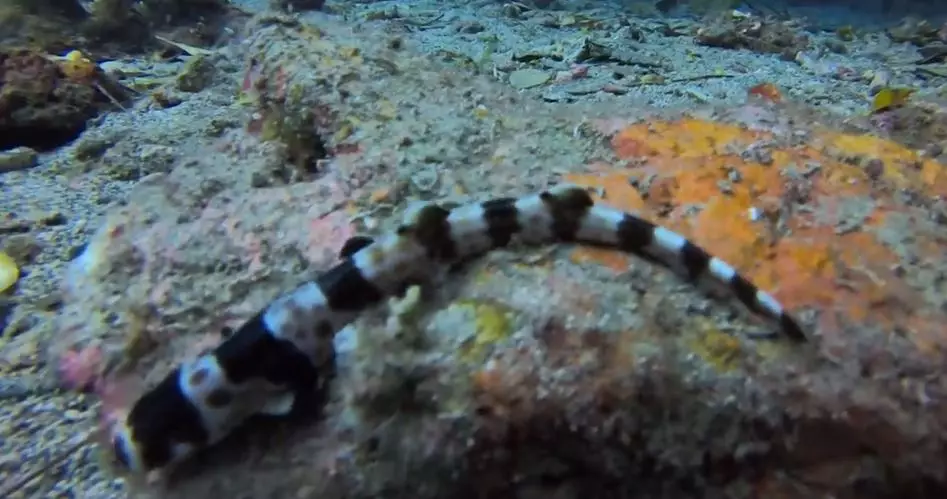
If you were read that headline and started picturing a great white shark standing upright or marching along the street, it's probably best not to let your imagination run wild. However, a new species of 'walking' sharks really is a thing:
This type of shark is the most recently evolved shark species on Earth, according to a paper from the joint forces of environmental organisation Conservation International, the University of Queensland, the Indonesian Institute of Sciences, the Australian CSIRO and the University of Florida.
Advert
The findings contradict long-held perceptions that sharks, which are among the world's most ancient animals, are slow to evolve.
Dr. Mark Erdmann, Conservation International Vice President of Asia-Pacific Marine programs and co-author of the paper, said: "We found the sharks, which use their fins to 'walk' around shallow reefs, only split off evolutionarily from their nearest common ancestor about nine million years ago, and have been actively radiating into a complex of at least nine walking sharks ever since."

He continued: "That may seem like a long time ago, but sharks have ruled the oceans for more than 400 million years. This discovery proves that modern sharks have remarkable evolutionary staying power and the ability to adapt to environmental changes.
Advert
"A global recognition of the need to protect walking sharks will help ensure they thrive, providing benefits for marine ecosystems and to local communities through the sharks' value as tourism assets.
"It's essential that local communities, governments, and the international public continue working to establish marine protected areas, to help ensure our ocean's biodiversity continues to flourish."

Dr. Christine Dudgeon, a research fellow at the School of Biomedical Sciences at the University of Queensland and the paper's lead author added: "Using the DNA of these sharks, we were able to estimate when the sharks evolved as well as investigate the processes leading to speciation.
Advert
"We found that changes in sea levels, new reef and land formations and movements of the sharks all played a role.
"This information is important not just for walking sharks but for understanding how species have evolved in this region of highest tropical marine biodiversity globally."
The new findings renew hope that more walking shark species, also called bamboo sharks, will be added to the International Union for Conservation of Nature Red List. To date, only three of the nine known species are included because of previously unavailable data.
Featured Image Credit: Conservation International